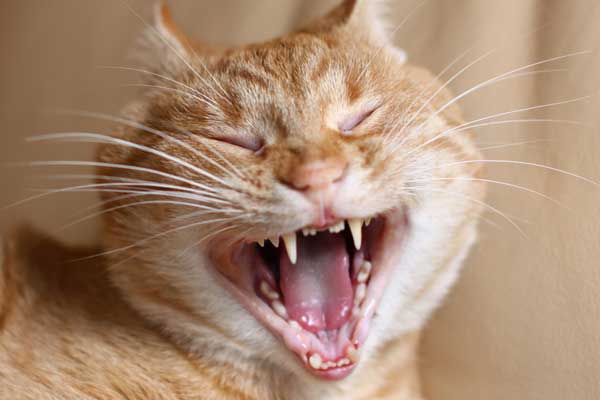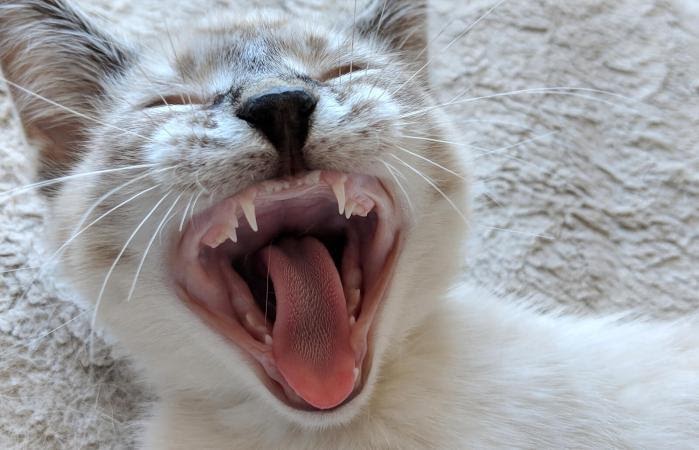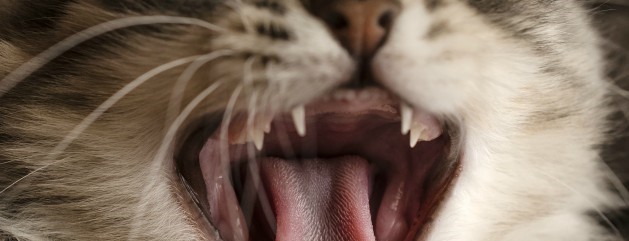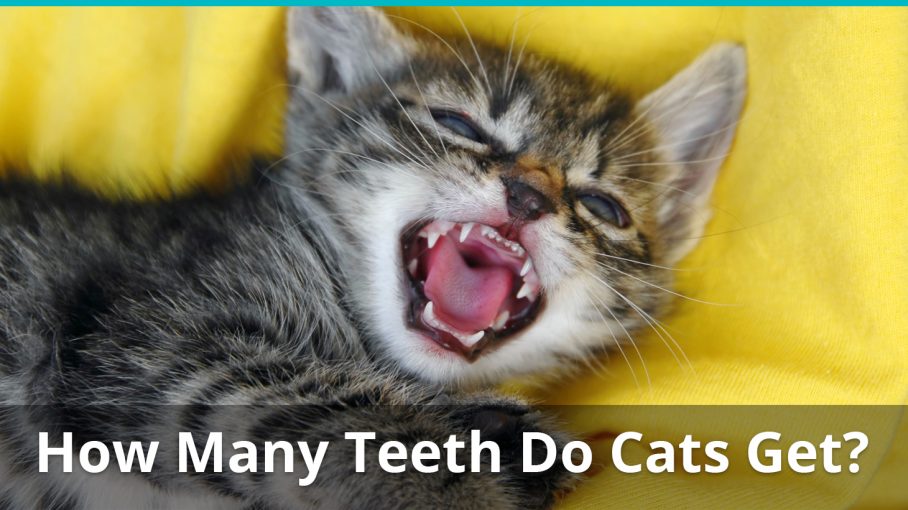Cats are carnivores, and their teeth are different from that of a human. One obvious difference is that an adult cat’s teeth are not as flat as that of a human. As carnivorous beings, cats will not be able to survive on vegetables, fruits, or other human food. A cat’s teeth are naturally suited for chewing meat and meat products.
Being the caretaker of your cat, you should only feed high-quality food to your cat. Fillers and meat substitutes are not going to give any health benefits to your cat. Like every other creature, kittens also experience various stages of growth during their journey towards maturity. Similarly, a cat goes through various stages of teething.
Generally, a normal baby kitten will have 26 teeth, and as it reaches adulthood, it will end up having 30 teeth in total. Two sets of teeth, commonly referred to as fangs, grow in different stages of a cat’s life.
Teething Process in a Cat

Within the second to fourth weeks of a kitten’s birth, the teething process starts taking place. Just like human babies during their teething stages, a kitten will also show signs of teething. At this stage, the kitten will start showing behaviors like biting, hissing, constant meowing, etc. When your kitten starts showing these signs, there is no need to be concerned as these behaviors are completely natural.
When you have a newborn kitten, you must start feeding it vitamins and kitten formula of high quality. A balanced nutritional diet is essential for a kitten to have healthy teeth and also for its healthy growth.
Your cat’s permanent teeth will start growing when it is three to four months old. The baby teeth will fall out during the teething stage, making room for a permanent set of teeth. Your cat will have a set of 30 teeth by the time it reaches adulthood unless he ends up having dental issues.
Many reasons can damage a cat’s teeth. Reasons like bad genes, bad diet, negligence to dental hygiene, etc., are factors that can result in your cat’s teeth’ poor strength.
Healthy Teeth for your Cat

By neglecting the dental hygiene of your cat, it can lead to oral health issues such as bad breath, gum disease, decay, staining, etc. Unlike humans, your cat will not benefit from eating cheese or other dairy products as it will not strengthen its enamel.
There are, however, other measures to prevent your cat from facing oral health problems. One easy method is to get feline teeth cleaning products and use that to brush your cat’s teeth regularly. The toothpaste and toothbrush, which are made for humans, contain chemicals that could be dangerous for cats. Always use only those products which have been manufactured specifically for cats.
You can also prevent dental problems by getting special treats meant for strengthening and improving your cat’s teeth. These dental treats prevent tartar from building up and keeps your cat’s teeth clean. These treats are easy to chew, and it comes in various flavors like beef, salmon, chicken, etc., which makes it more appealing in taste. Feeding dental treats is also good for the overall health of your cat as it is packed with minerals, vitamins, taurine, and other nutritional values.
Cavities in Cats
On average, cats will never have the experience of suffering from cavities, but that doesn’t mean that it is impossible. The quantity of sugar that is present in the cat’s food can cause plaque and tartar deposits, but it isn’t enough to cause cavities. But, like humans, the main reason behind cavities in cats is due to their diet.
Veterinarians recommend feeding dental treats to cats over dry cat food for various reasons. These dental treats are larger so, as your cat works its teeth over the treat, he is consuming nutrients that are good for his health.
Dental Facts of a Cat

Cats’ teeth are developed for chewing meat: Cats are carnivores, and their primary source of protein comes from meat. Cats have sharp molars, which they use for tearing meat but, molars cannot chew or grind the meat.
They use their teeth while grooming: Felines of all kinds use the incisor teeth to groom themselves. The incisor teeth are the first set of permanent teeth that grows during the teething process in a cat. Cats use these incisor teeth for nibbling their matted fur or for getting rid of fleas and foreign objects from their body.
A cat’s bite can be dangerous: The bite of a cat can pose a danger not just for humans but for other pets in your household. A cat’s bite can lead to several types of infections and cause inflammation, cysts, etc., if not treated properly.
The Dental Health of a Cat

Cats can face dental problems, just like humans. When a cat grows older, its teeth start to worsen, irrespective of how well you have been taking care of its dental hygiene. Gum diseases and loosening of teeth become common at a certain age.
Teeth extractions in cats are not unlikely. Most cats start facing dental issues by the time they are three years old, but teeth extractions in cats usually happen after they are ten years or older. Just like the way humans care about their dental health, caring for your cat’s dental health is also equally important. You need to take good measures to ensure that your cat does not suffer from gum infections or dental infections of any kind in their future.
You should have your cat’s dental health checked at the vet clinic at least once a year because oral cancer can also happen in cats. If you notice any lump, swelling, or discoloration in your cat’s mouth, take him immediately for a check-up.
Cats are similar to humans in more ways than you can think of, and dental care of your cat should be taken very seriously. The sooner you start taking preventative measures by feeding your cat a well-balanced diet, giving him dental treats, and taking him for a routine check, the healthier he will be.
